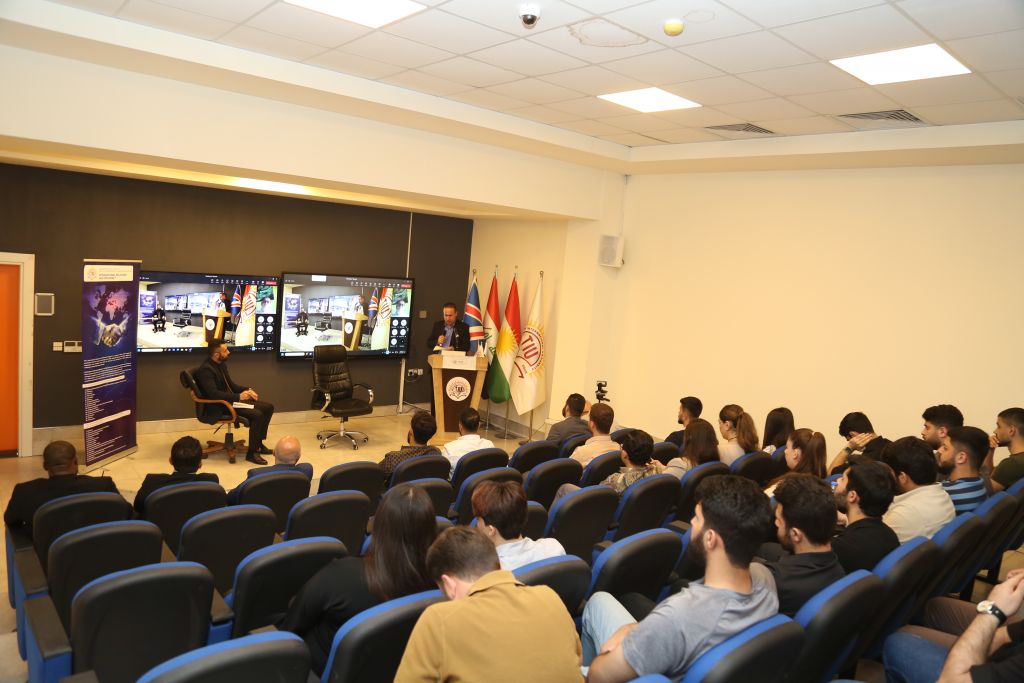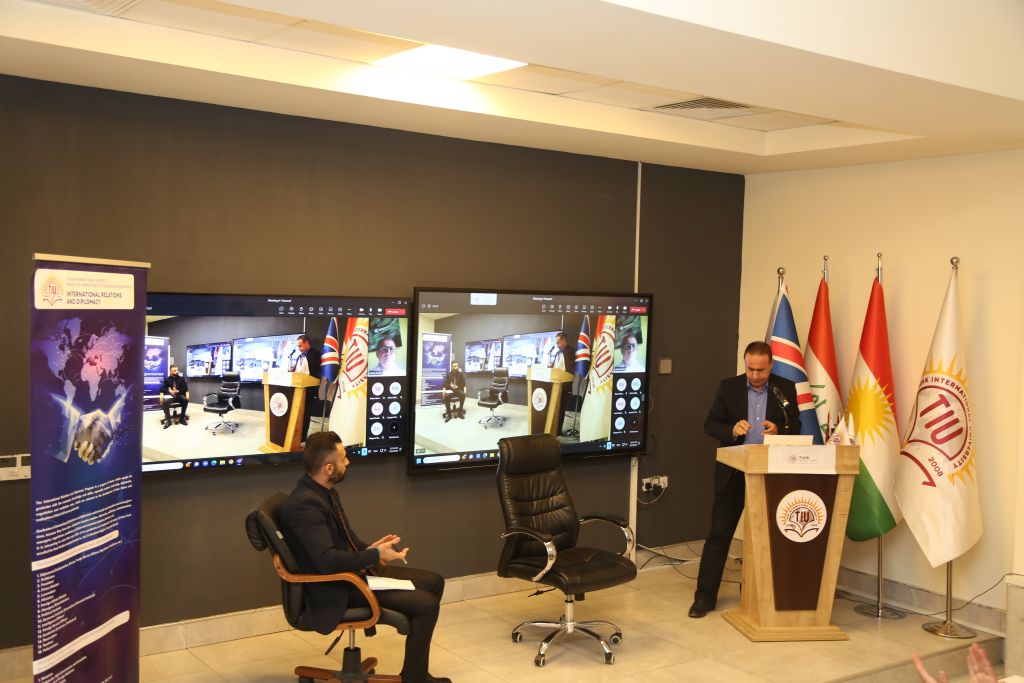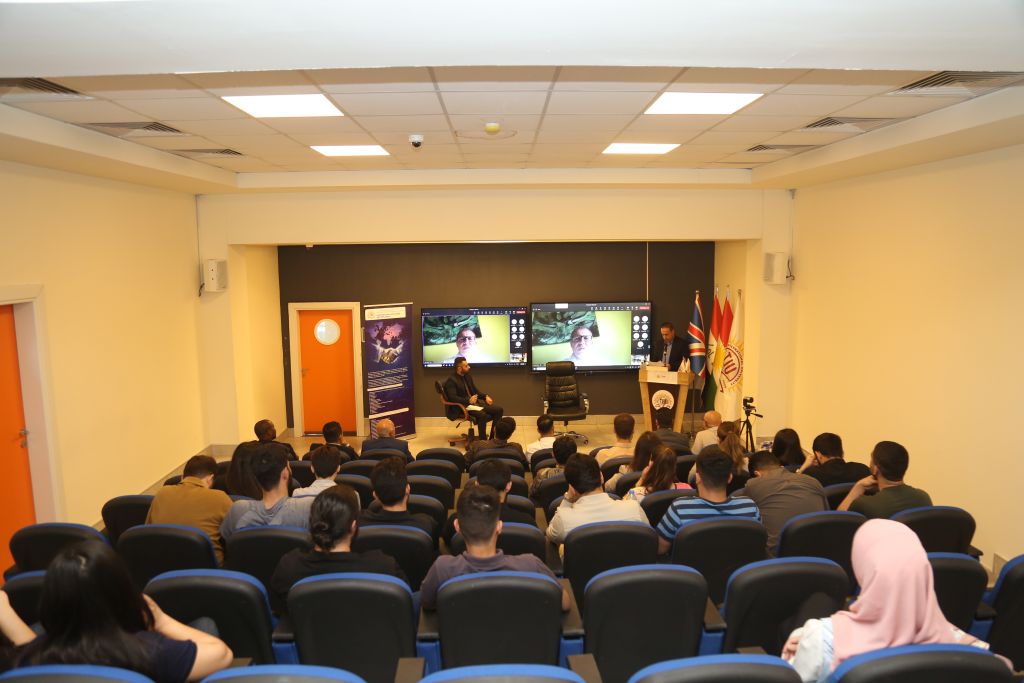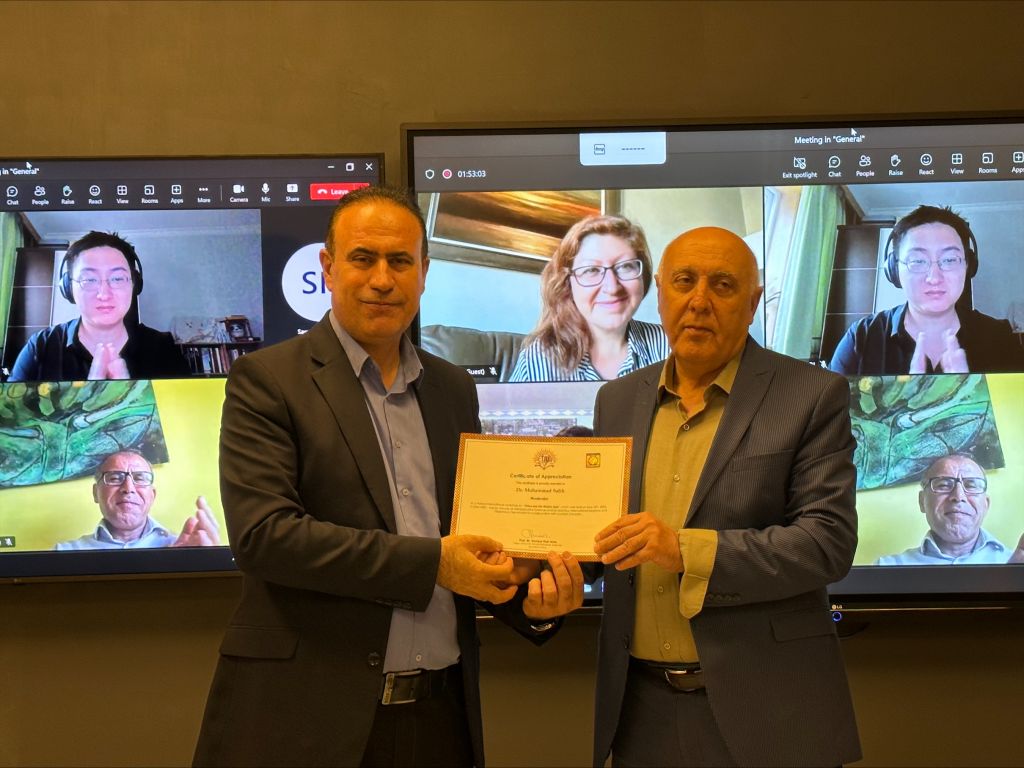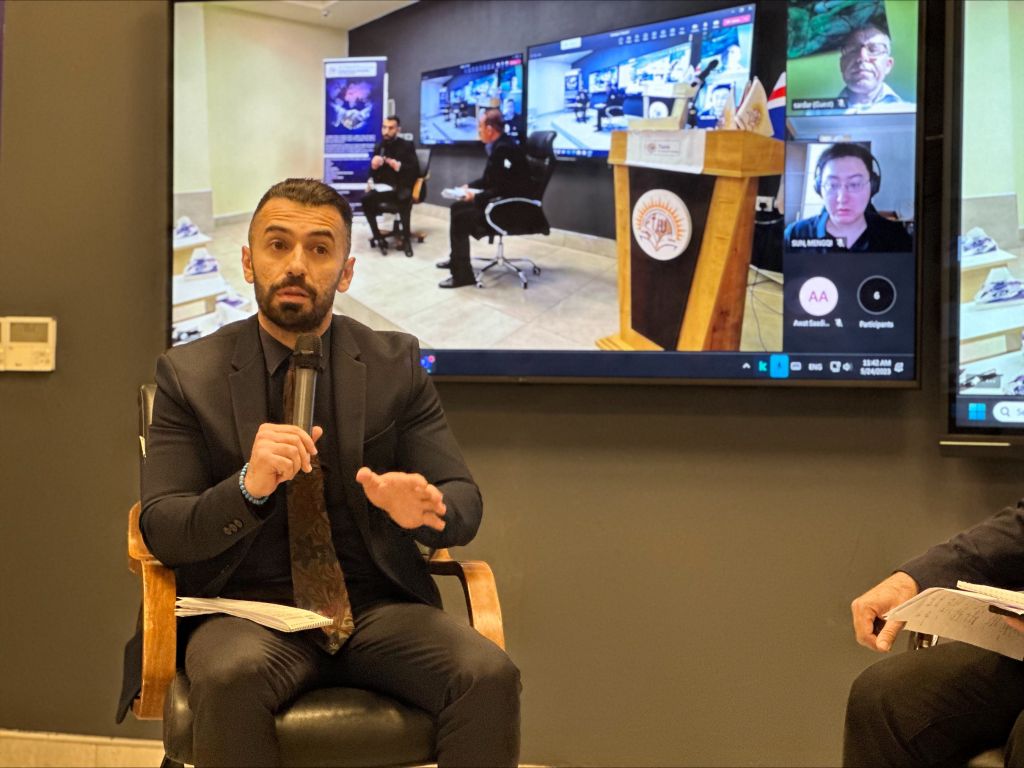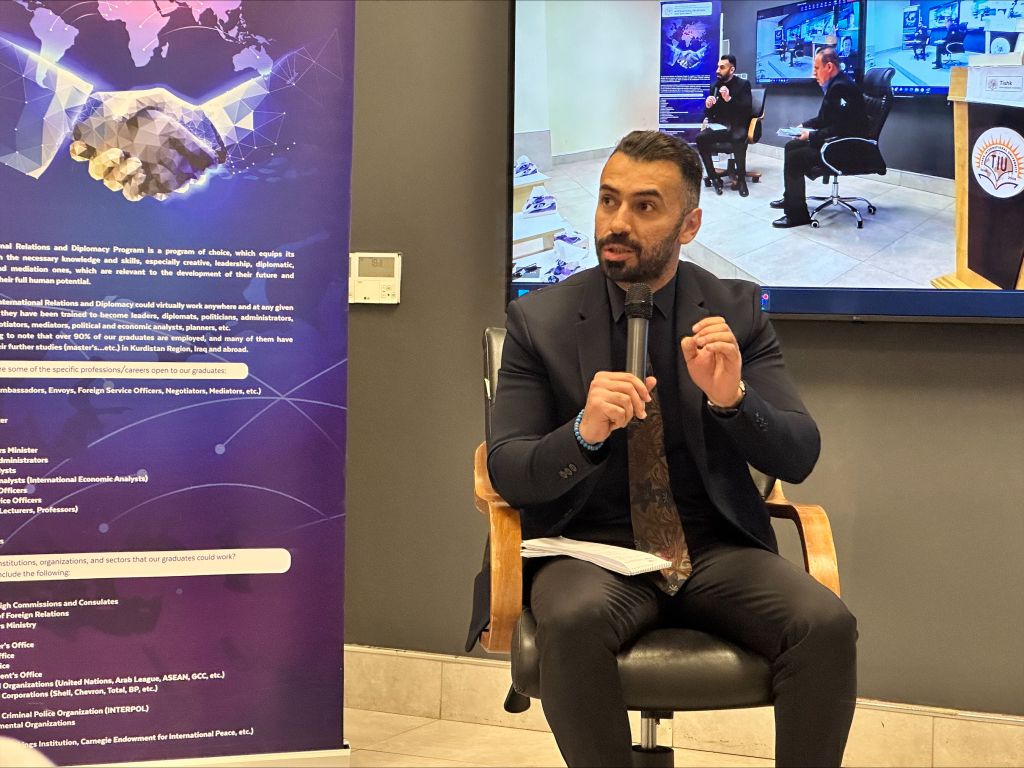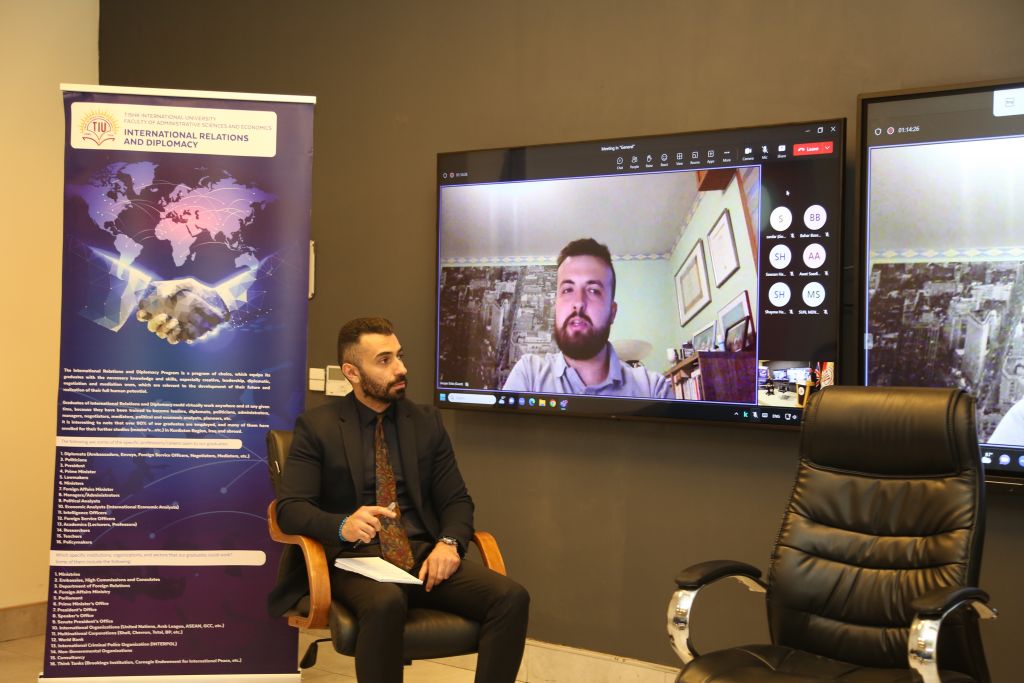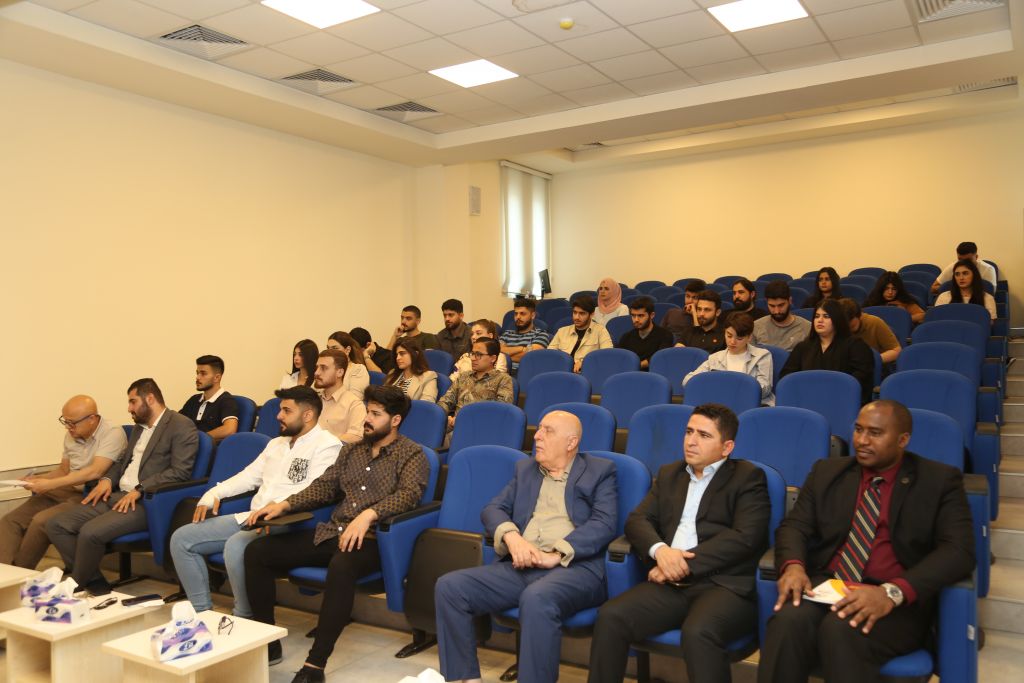IRD Department Organizes Hybrid International Workshop on China and Middle East
In collaboration with Durham University, UK, the International Relations and Diplomacy Department, Faculty of Administrative Sciences and Economics at Tishk International University organized a hybrid International Workshop on China and the Middle East, held on May 24th, 2023. The workshop began with an opening remark by the Head of IRD Department, Dr. Mohammad Salih Mustafa, who also served as the workshop moderator. He welcomed all attendees to the event, and introduced the five distinguished speakers.
The first speaker, Dr. Bahar Baser, an Associate Professor in Middle East Politics at Durham University, expressed her appreciation to the IRD Head of Department, and stated the readiness of Durham University for collaboration with Tishk International University in areas of mutual academic benefit. She went further to highlight the importance of the workshop, given the changing dynamics of the international system and global political economy.
The second speaker, Mr. Dana Sajadi, talked on The Role of China in the Global System. He traced the progress of China to the 20th century and 1970’s, where it transformed from an agrarian society to an industrial one through domestic liberalization of its economy without changing the political system. He further explained China’s foreign policy approach, which is through soft power and economic diplomacy. This, he explained, had made states, especially from the developing world (Global South) to embrace China because it has helped them build critical infrastructure, especially through the Build Road Initiative (BRI) necessary for economic growth and development. He also explained that China is adopting the same foreign policy model in its relations with states in the Middle East. On this account, China is seen as a potential game changer in international political and economic relations, particularly given the trending issue of de-dollarization, largely promoted by the BRICS and their allies.
Dr. Sardar Aziz, the third speaker, talked on The Coming Again of Mao to Erbil: The Past and Present of the China-Kurds in Iraq Relationship. Under this, he highlighted the fact that China’s domestic policy is what guides its foreign policy, especially in the context of its relations with Kurdistan, as it is hesitant in showing open support for the region being an entity within the state of Iraq. However, China has presence in Kurdistan and Salahaddin Universities, and it provides scholarships for Kurdish students. He further stated that China does not want to replace the US security architecture in the Middle East. China had opened a General Consulate in Erbil in 2019 with a view to strengthening its political, economic, social and cultural relations with the Kurdistan Region.
The fourth speaker, Mr. Mengqi Sun, spoke on When Sick Men Meet: The History, Myth, and Reality in Sino-Turkish Relations. He traced the relations between China and Turkey to the Ottoman Empire, and also stated that China’s foreign policy is associated with its domestic policy. China and Turkey, on many occasions, abstained from United Nations resolutions in order to help each other or their allies, even though these actions have geopolitical and global implications. He also talked about the plight of the Uyghurs in China’s north-western province of Xinjiang and the question of the Uyghurs diaspora.
A presentation on Anatomy of an Extraordinary Partnership: The Failed Normalization of Sino-Iranian Relations was delivered by the fifth speaker of the workshop, Dr. Jacopo Scita. Under this, he traced the historical trajectory of the relations between China and Iran to 1971, and explained that their relationship is anchored on political, economic and strategic realms. He took the participants through how China has been instrumental in Iran’s political and economic survival, because it continues to engage in oil trade with Iran despite the sanctions imposed on it.
Finally, a Q&A session followed, where participants, including TIU academics, students and members of the public asked questions, all answered by the speakers to whom the questions were directed. Certificates of Appreciation were given to the speakers and moderator, Dr. Mohammad Salih Mustafa.


